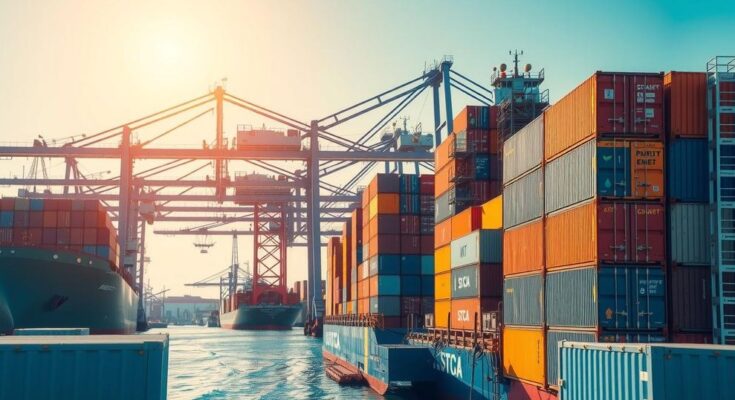Brazil is engaging with Saudi Arabia to attract investments in its port sector, presenting opportunities for over 40 concessions by 2026. Minister Silvio Costa Filho highlighted Brazil’s strong economic performance, which includes significant growth in container operations. The discussions suggest a strategic alliance that might foster further investment opportunities.
Brazil is pursuing important discussions with Saudi Arabia to secure new investments in its port sector, as global operators focus on key infrastructure projects slated for concession by 2026. This initiative has been reported by the Brazilian government, reflecting a concerted effort to enhance the country’s port capabilities.
Silvio Costa Filho, Brazil’s Minister of Ports and Airports, showcased the nation’s largest inventory of port and waterway concession projects to leading container terminal operators from Saudi Arabia. He emphasized Brazil’s significant economic growth, including a more than 5% increase in the port sector for 2024 and an 18% rise in container operations. This growth, along with thriving industrial and agribusiness sectors, positions Brazil as an appealing center for global trade.
In the next two years, Brazil plans to initiate over 40 port concessions aimed at enhancing solid and liquid bulk terminals and vital infrastructure for the mining industry. With both Brazil and Saudi Arabia committing to strengthen cooperation in the port sector, these discussions indicate the prospect of a strategic partnership, which could lead to additional negotiations and investment opportunities.
In conclusion, the ongoing discussions between Brazil and Saudi Arabia signify a strategic move towards enhancing Brazil’s port sector through significant investments. Brazil’s robust economic growth and the impending launch of numerous port concessions are key elements attracting global operators. This partnership not only reflects Brazil’s intent to strengthen its infrastructure but also highlights the potential for expanded bilateral cooperation in global trade.
Original Source: tvbrics.com




